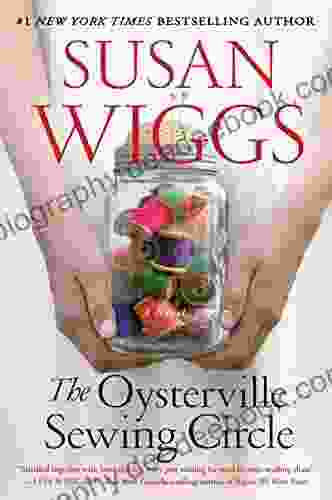The Expulsion of Equality as a Determinant of Happiness in the Modern Age

Happiness is a complex and elusive concept that has been studied by philosophers, psychologists, and economists for centuries. While there is no single definition of happiness that is universally agreed upon, most people would agree that it is a desirable state of being characterized by feelings of joy, contentment, and well-being.
5 out of 5
| Language | : | English |
| File size | : | 2539 KB |
| Text-to-Speech | : | Enabled |
| Enhanced typesetting | : | Enabled |
| Word Wise | : | Enabled |
| Print length | : | 5 pages |
| Screen Reader | : | Supported |
For much of human history, equality has been seen as a key determinant of happiness. In ancient Greece, Aristotle argued that happiness was the ultimate goal of human life, and that it could only be achieved through a life of virtue and contemplation. For the early Christians, happiness was seen as a reward for living a life in accordance with God's will. And in the Enlightenment, philosophers such as John Locke and Jean-Jacques Rousseau argued that happiness was a natural right that all people should be able to enjoy.
However, in the modern age, the idea that equality is a determinant of happiness has come under increasing attack. This is due in part to the rise of individualism, which has led to a focus on personal achievement and self-reliance. It is also due to the growth of economic inequality, which has made it increasingly difficult for people to achieve a decent standard of living.
As a result of these changes, the pursuit of happiness has become increasingly individualized and privatized. People are now more likely to seek happiness through personal relationships, material possessions, and experiences. This has led to a decline in the importance of community and social cohesion, and has made it more difficult to address the root causes of unhappiness.
The expulsion of equality as a determinant of happiness has had a profound impact on the modern age. It has led to a more individualistic and materialistic society, and has made it more difficult to create a more just and equitable world. If we want to create a happier and more fulfilling society, we need to rediscover the importance of equality and work to create a more just and equitable world for all.
The Historical Roots of the Expulsion of Equality
The idea that equality is a determinant of happiness has its roots in the ancient Greek concept of eudaimonia. Eudaimonia was not simply a state of happiness, but a state of flourishing or well-being that could only be achieved through a life of virtue and contemplation. For the Greeks, equality was essential for eudaimonia because it allowed people to participate fully in the political and social life of their community.
The Christian tradition also emphasized the importance of equality. In the Gospels, Jesus taught that all people are equal in the eyes of God, and that we should love our neighbors as ourselves. This message of equality was taken up by the early Church Fathers, who argued that equality was essential for a just and peaceful society.
In the Enlightenment, the idea of equality was further developed by philosophers such as John Locke and Jean-Jacques Rousseau. Locke argued that all people are born with certain natural rights, including the right to life, liberty, and property. Rousseau argued that all people are equal by nature, and that inequality is a product of social institutions. These ideas helped to inspire the American and French Revolutions, which enshrined the principle of equality in their constitutions.
The Rise of Individualism and the Decline of Equality
The Industrial Revolution and the rise of capitalism in the 19th century led to a decline in the importance of equality. As people moved from rural villages to urban centers, they became more isolated and self-reliant. This led to a focus on personal achievement and self-reliance, and a decline in the importance of community and social cohesion.
The rise of individualism was also fueled by the growth of economic inequality. As the wealthy elite became increasingly wealthy, they began to distance themselves from the rest of society. This led to a decline in social mobility and a growing sense of resentment among the poor and working class.
As a result of these changes, the idea that equality is a determinant of happiness came under increasing attack. This was due in part to the rise of Social Darwinism, which argued that inequality is a natural and inevitable part of human society. It was also due to the growth of consumerism, which encouraged people to seek happiness through material possessions and experiences.
The Impact of the Expulsion of Equality
The expulsion of equality as a determinant of happiness has had a profound impact on the modern age. It has led to a more individualistic and materialistic society, and has made it more difficult to create a more just and equitable world.
One of the most significant impacts of the expulsion of equality has been the decline in social cohesion. In the past, people were more likely to feel connected to their community and to each other. This sense of community provided a sense of belonging and support, and it helped to buffer people from the stresses of life.
However, in the modern age, people are more likely to feel isolated and alone. This is due in part to the rise of individualism, which has led to a focus on personal achievement and self-reliance. It is also due to the growth of economic inequality, which has made it more difficult for people to connect with each other across class lines.
The decline in social cohesion has had a number of negative consequences. It has led to an increase in loneliness, depression, and anxiety. It has also made it more difficult to address the root causes of social problems, such as poverty and crime.
Another significant impact of the expulsion of equality has been the rise of consumerism. In the modern age, we are constantly bombarded with messages that tell us that we need to buy more things in order to be happy. This has led to a culture of overconsumption, which is having a devastating impact on our environment and our well-being.
Consumerism has also led to a decline in the importance of community and social relationships. When we are constantly focused on acquiring material possessions, we have less time and energy to invest in our relationships with others. This has led to a decline in social capital, which is the trust and cooperation that exists between people in a community.
The Way Forward
If we want to create a happier and more fulfilling society, we need to rediscover the importance of equality and work to create a more just and equitable world for all. This will require a fundamental shift in our values and priorities. We need to move away from the individualism and materialism that has characterized the modern age, and towards a more cooperative and compassionate society.
One of the most important things we can do is to invest in social programs that help to reduce economic inequality. This includes programs such as universal healthcare, affordable housing, and quality education. We also need to work to create a more just and equitable tax system that ensures that the wealthy pay their fair share.
We also need to invest in our communities and in social relationships. This means spending time with our families and friends, volunteering in our communities, and working to build bridges between different groups of people. We also need to support organizations that are working to create a more just and equitable world.
The expulsion of equality as a determinant of happiness has been a defining feature of the modern age. However, it is not too late to change course. By rediscovering the importance of equality and working to create a more just and equitable world, we can create a happier and more fulfilling society for all.
5 out of 5
| Language | : | English |
| File size | : | 2539 KB |
| Text-to-Speech | : | Enabled |
| Enhanced typesetting | : | Enabled |
| Word Wise | : | Enabled |
| Print length | : | 5 pages |
| Screen Reader | : | Supported |
Do you want to contribute by writing guest posts on this blog?
Please contact us and send us a resume of previous articles that you have written.
 Page
Page Chapter
Chapter Text
Text Reader
Reader Library
Library Paperback
Paperback Magazine
Magazine Paragraph
Paragraph Bookmark
Bookmark Preface
Preface Synopsis
Synopsis Manuscript
Manuscript Tome
Tome Classics
Classics Narrative
Narrative Biography
Biography Autobiography
Autobiography Memoir
Memoir Thesaurus
Thesaurus Character
Character Resolution
Resolution Librarian
Librarian Catalog
Catalog Borrowing
Borrowing Stacks
Stacks Archives
Archives Periodicals
Periodicals Study
Study Scholarly
Scholarly Reserve
Reserve Rare Books
Rare Books Interlibrary
Interlibrary Literacy
Literacy Study Group
Study Group Thesis
Thesis Dissertation
Dissertation Awards
Awards Book Club
Book Club Theory
Theory Textbooks
Textbooks Ron D Snee
Ron D Snee Craig Laurance Gidney
Craig Laurance Gidney David Rabe
David Rabe Dan Moller
Dan Moller C M Benamati
C M Benamati Marla Martenson
Marla Martenson Adolph Barr
Adolph Barr David H Petraeus
David H Petraeus Chris Manuel
Chris Manuel 2nd Edition Kindle Edition
2nd Edition Kindle Edition Kevin Clune
Kevin Clune Nicole Calver
Nicole Calver Jessica Young
Jessica Young Jane Green
Jane Green Abba
Abba Brandon Tosti
Brandon Tosti David C Schwartz
David C Schwartz Helen Winter
Helen Winter Nils Petter Gleditsch
Nils Petter Gleditsch Allison Stanger
Allison Stanger
Light bulbAdvertise smarter! Our strategic ad space ensures maximum exposure. Reserve your spot today!

 Anthony WellsUnveiling the Enchanting World of "The Oysterville Sewing Circle": A Literary...
Anthony WellsUnveiling the Enchanting World of "The Oysterville Sewing Circle": A Literary... Emmett MitchellFollow ·16.9k
Emmett MitchellFollow ·16.9k Dean ButlerFollow ·12.5k
Dean ButlerFollow ·12.5k Henry David ThoreauFollow ·5.1k
Henry David ThoreauFollow ·5.1k Gilbert CoxFollow ·9.5k
Gilbert CoxFollow ·9.5k Everett BellFollow ·9.3k
Everett BellFollow ·9.3k Troy SimmonsFollow ·6.4k
Troy SimmonsFollow ·6.4k Branson CarterFollow ·15.1k
Branson CarterFollow ·15.1k D'Angelo CarterFollow ·15.1k
D'Angelo CarterFollow ·15.1k

 Franklin Bell
Franklin BellSecond Edition Pdf No Audio: A Comprehensive Guide to the...
The Second Edition...

 Jackson Blair
Jackson BlairTrends and Issues in Instructional Design and Technology
Instructional...

 Mario Vargas Llosa
Mario Vargas LlosaEnchanting Enigma Variations and Triumphant Pomp and...
The Enigma Variations: A...

 Dwight Blair
Dwight BlairTime Between Us: A Novel That Explores the Power of...
Prepare to be swept away by...
5 out of 5
| Language | : | English |
| File size | : | 2539 KB |
| Text-to-Speech | : | Enabled |
| Enhanced typesetting | : | Enabled |
| Word Wise | : | Enabled |
| Print length | : | 5 pages |
| Screen Reader | : | Supported |













